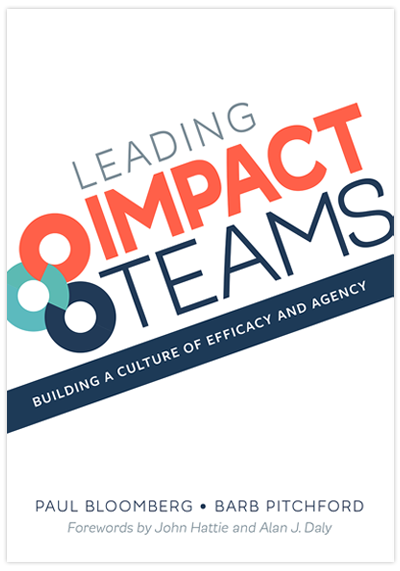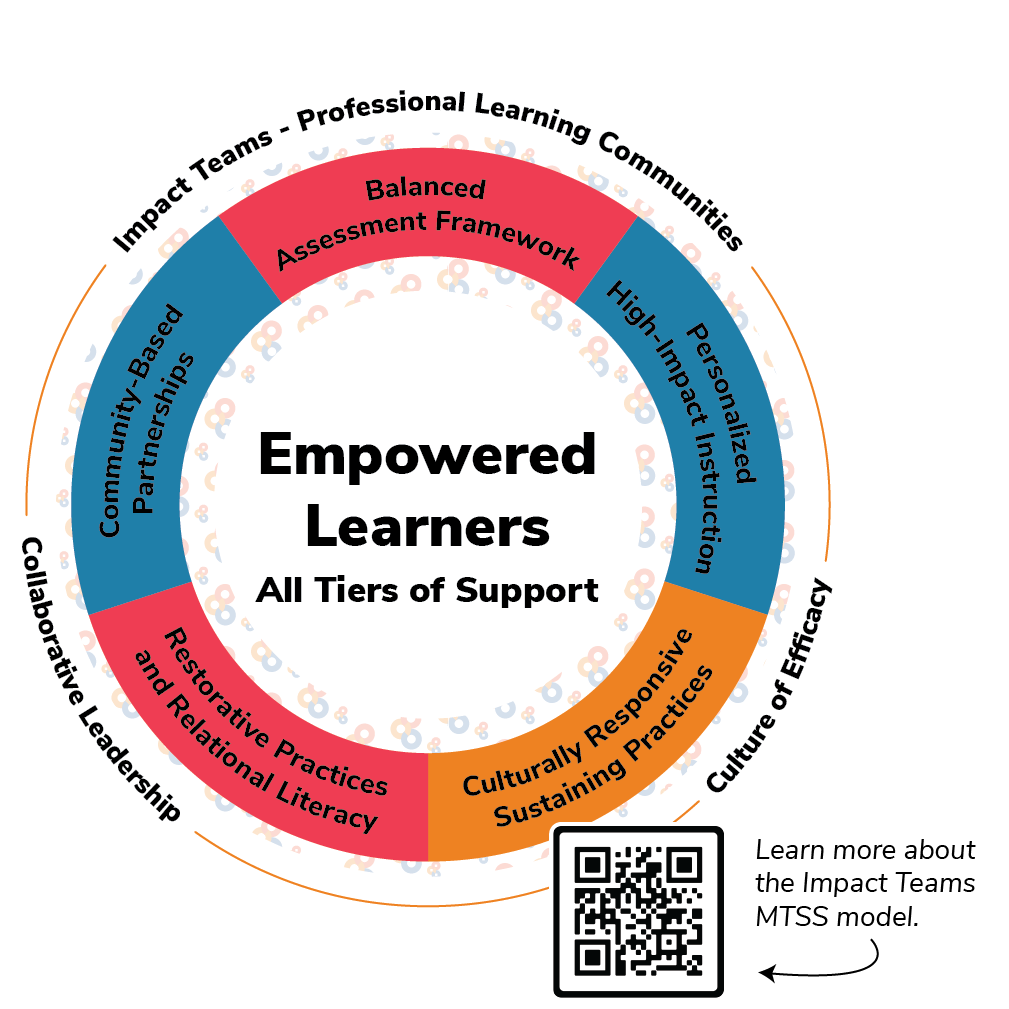How do you empower teacher teams to develop collaborative expertise?
What are your Professional Learning Community goals?
Build a culture of efficacy through asset-based continuous improvement cycles.
View PD OptionsStrengthen culturally responsive-sustaining core instruction and refine personalized tiers of support
View PD OptionsQuality, Customized Professional Learning That Works
Our professional learning pathways all have the same goal, to advance learner ownership, efficacy, and agency. We partner with your system to assess your needs and co-construct an action plan anchored in implementation science. We are ready to help and support you at any stage of your learning journey.
Our Learning Progression
Foundational Learning
Build a shared language of learning anchored in co-constructed goals and success criteria aligned to your mission and vision.
Job-Embedded Coaching
Empower educators using the gradual release of responsibility to model, coach, monitor, and analyze progress towards shared goals.
Sustainable Systems
Advance teacher agency to ensure risk-taking, innovation, and collective efficacy through quality implementation.
Impact Teams-PLCs
How do you ensure that your teams are making a collective impact? The Impact Team model provides teams of educators with the structures and practices needed to solve puzzles of practice through asset-based continuous improvement cycles.
Leading Impact Teams 2.0: The Foundation
Are your students taking ownership of their learning? Advance teacher and learner agency by building a culture of collaborative inquiry. When teams have the power and influence to make evidence-based decisions aligned with school-wide goals, conditions are created for them to take ownership of their learning. This foundation day ensures that members of your PLCs have the shared understanding and skills necessary to plan and launch collaborative inquiry aimed at increasing student ownership of learning.
- Evaluate your PLCs and develop effective structures, protocols, and practices
- Learn the role of a peer facilitator in implementing and sustaining change
- Explore the role of learner identity in supporting learners to reach their goals through learning strategies
- Learn how to use collaborative inquiry to advance culturally responsive formative assessment
- Cultivate a formative mindset by creating a sustainable model for high-quality feedback
Leading Impact Teams: Building A Culture of Efficacy and Agency
Paul J. Bloomberg Ed.D. and Barb Pitchford
Cultivate a Culture of Collaborative Inquiry with ILTs
The Instructional Leadership Team (ILT) is responsible for ensuring that the vision and goals for the school are well-established, practical, and actionable through collaborative leadership. Impact Teams provide schools with the PLC structures, processes, and practices needed to solve puzzles of practice through collaborative inquiry. Learn how ILTs create a culture of continuous improvement using the Impact Team framework.
- Define ILT team roles (peer facilitation) to create a culture of collaborative inquiry via shared decision-making to advance learner agency
- Learn the conditions of fostering self- and collective efficacy and how they relate to cultivating a culture of belonging
- Assess the system for Impact Team readiness and determine the next steps to ensure quality “assessment for learning” and effective teaming.
- Analyze and triangulate big data sets to determine strengths and school-wide goals to determine school priorities and how they align with MTSS.
Leading Impact Teams: Building A Culture of Efficacy and Agency
Paul J. Bloomberg Ed.D. and Barb Pitchford
Advancing Impact Team Peer Facilitation
The most successful people have coaches and PLCs are no different. The research is clear (Gallimore, Ermeling, Saunders, & Goldenberg, 2009), Peer Facilitators are necessary to ensure effective PLC meetings are actionable, realized in the classroom setting, and aligned to school wide goals. We employ side-by-side coaching as a way for peer facilitators to realize their goals.
- Lead effective meetings using a variety of purposeful protocols
- Ensure students are clear about curricular goals and involved in their learning
- Engage students in culturally responsive formative assessment
- Support your least experienced learners via MTSS
- Analyze and triangulate evidence of student learning for impact
- Strengthen differentiated instructional strategies anchored in root causes
Leading Impact Teams: Building A Culture of Efficacy and Agency
Paul J. Bloomberg Ed.D. and Barb Pitchford
Impact Teams in Action: Igniting Rigorous Learning
Impact Teams-PLCs and ILTs transform evidence of learning into rigorous collective actions! Focusing on collaborative inquiry, anchored in shared goals, teams can turn insights into practical, actionable steps that engage students at all three levels of rigor (surface-deep-transfer). Together, we can create a culture of continuous improvement where evidence fuels strategies that lead to observable impact!
- Use evidence to guide collective actions anchored in all three levels of rigor
- Unpack PLC instructional strategies with concrete practical steps
- Understand impact connected to PLC collective actions
Leading Impact Teams: Building A Culture of Efficacy and Agency
Paul J. Bloomberg Ed.D. and Barb Pitchford
Impact Teams Multi-Tiered Systems of Support (MTSS)
The Impact Team MTSS model is the only MTSS framework that empowers learners to make decisions about the learning support they need. Strengthen culturally responsive-sustaining core instruction and refine personalized tiers of support to build academic, social and emotional capacity in our learners.
MTSS Comprehensive Needs Assessment
- Determine strengths across the system
- Determine needs across MTSS 5-core components
- Prioritize components that will have the most impact
- Articulate next steps, resources needed, and timelines
Impact Teams MTSS Framework
Paul J. Bloomberg, EdD
Advancing Impact Teams Core Components for Continuous Improvement
Based on the comprehensive needs assessment, Impact Teams advance the critical components necessary for quality core instruction and refine evidence-based tiers of support through:
- Culturally Responsive and Sustaining Teaching
- Balanced Assessment Framework
- Personalized High-Impact Instruction
- Restorative Practices and Relational Literacy
- Community-Based Partnerships
Impact Teams MTSS Framework
Paul J. Bloomberg, EdD
Resources
Meet the Pathway Team
Let's Connect
Complete the form below and we’ll be in touch to create a solution that addresses your needs and achieves your goals in learning spaces.
Prefer to talk on the phone? No problem! You can give us a call at: 619-432-2673
This form is on the "Let's Connect" Section on the Homepage
"*" indicates required fields













